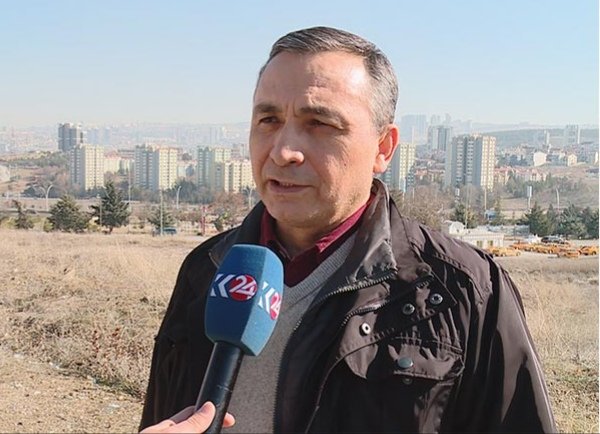Steven Sahiounie, Journalist and political commentator
President Erdogan has won the war in Syria. He began the US-NATO regime change project in 2011 under the direction of US President Barack Obama. Erdogan finally achieved his victory over the brutal dictator Bashar al-Assad, and the Syrian people on December 8.
The war in Syria cost Erdogan politically, socially, and economically. Erdogan hosted over 3 million Syrian refugees, who have become hated and unwelcomed by the Turkish people, and the cost of supporting para-military mercenaries (Syrian National Army) and Jihadists (Hayat Tahrir al-Sham) has drained the economy of Turkey.
Now that Erdogan is victorious, with the resulting Islamic State established in Damascus, he can insist that the Syrian refugees go home, which will satisfy his citizens who feel their jobs have been taken by Syrians who do not share their ethnicity, language, or traditions. Finally, after 12 years, Erdogan can focus on making money again from exports to Syria.
According to the Turkish government, prior to 2011, Turkey’s exports to Syria were greater than its combined global exports. With the Turkish-US-NATO attack on Syria, Damascus cut all trade with Turkey, and over the years, Turkey fell into a deep financial crisis, made worse by Erdogan’s decisions concerning interest rates.
The Syrian market is fast becoming flooded with Turkish products. The huge oil and gas field lying offshore in Syria may also sweeten the pot of war bounty Erdogan is hoping to collect.
To understand the current situation from the Turkish perspective, Steven Sahiounie of MidEastDiscourse interviewed Aydin Sezer, a political scientist, foreign policy analyst, former diplomat, and economic advisor at the Turkish Embassy in Cairo and Moscow.
1. Steven Sahiounie (SS): Turkey has supported the Syrian opposition since 2011, and now they have won the war against former President Assad. In your opinion, how will Turkey and President Erdogan benefit from the Syrian opposition?
Aydin Sezer (AS): 1- Turkey has been involved in the Syrian civil war since 2011, but Assad’s departure from Syria was not a win for Turkey. 12-13 years is a long time, during which many different developments have occurred in Syria. Turkey has incurred serious costs by becoming a party to this war. To say that Turkey has won a victory in the midst of all this is a Pyrrhic victory.
As for the question of how Turkey will benefit from the opposition, we will have to wait and see. There are questions about how to harmonize both the HTS and the Syrian National Army (SNA) supported by Turkey, and whether the HTS administration will be able to provide an inclusive administration in Syria.
2. SS: Media reports say that Erdoğan has betrayed Russia’s President Putin after supporting the Hayat Tahrir al-Sham’s (HTS) attack on Aleppo. In your opinion, how will Russia respond to this betrayal?
AS: Turkey was responsible for the developments in the Idlib de-escalation zone, this was a task given to Turkey by the Astana process, but with the attack of HTS on Aleppo, it became clear that Turkey did not inform its partners, Russia and Iran, about this issue. Russia emphasized in its official statements that the issue was Turkey’s responsibility, which is true. Of course, it is possible to interpret it as a betrayal, but I personally do not think that Putin evaluates it in this way, but it is also a fact that the developments in Syria do not occupy a very important place on the ongoing problems and current tension between Turkey and Russia for the last one and a half years, and this will of course be recorded as a problem in the relations between the two countries.
3. SS: In your opinion, how do the Turkish people view the fall of Assad, and the HTS taking power in Syria?
AS: In addressing this question, it is important to recognize the sensitivity surrounding sectarian conflicts and the diverse perspectives among different communities in Turkey. While there is a shared concern about the fall of Assad and the events in Syria among the Sunni community, it is essential to acknowledge the differing views among supporters of the AKP and Erdogan. Their interpretation of events, which they celebrate at the Umayyad Mosque, reflects their personal and collective hopes for the future.
4. SS: The national army under Assad, the Syrian Arab Army (SAA), did not fight the HTS, and left Aleppo, Hama, Homs and Damascus defenseless in the face of the HTS attack. In your opinion, why did the SAA collapse without a fight?
AS: It is very difficult to answer this question as someone from outside Syria, but it is known that a large part of the population is in serious economic difficulties within the framework of the embargo imposed on Syria, and this is of course reflected on the members of the army, so it can be interpreted as a situation of incapacity or reluctance
5. SS: Israel has bombed all the Syrian military and infrastructure, leaving Syria with nothing to defend itself. In your opinion, is the goal, of the US and Israel, a new Middle East with craved-up borders?
AS: From the point of view of the US and Israel, what is happening in Syria is just a part of a process, a new step. I think the real goal is another process aimed at İran and also destroying the Iranian influence in Iraq. Therefore, the destruction of the entire defense infrastructure in Syria is an operation designed to prevent Israel from being exposed to a threat from Syria in the near or visible future, and of course, it is a process that will pave the way for the annexation of the areas where the Druze population lives to Israel.
Steven Sahiounie is a two-time award-winning journalist.



